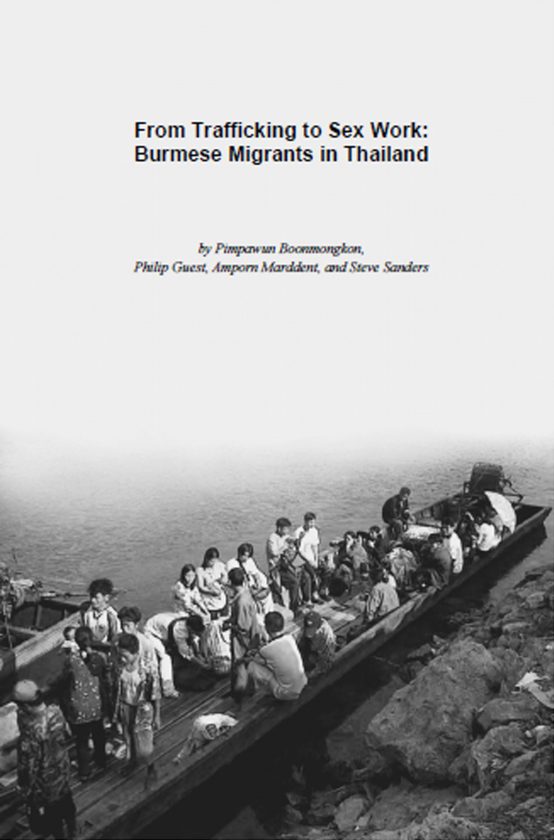‘From Trafficking to Sex Work: Burmese Migrants in Thailand’ in Living on the Edges: Cross-Border Mobility and Sexual Exploitation in the Greater Southeast Asia Sub-Region
Introduction
In Thailand issues of sexuality are intertwined with issues of migration. Economic and social disparities among countries in the region provide incentives for movement while development choices adopted by the Thai government structure who moves and under what conditions they move. Some of the development paths taken by the Thai government and neighboring countries have provided the conditions through which movement into and out of Thailand is associated with sexuality. At the individual level, sexual identity and representation are crucially related to
movements across borders.
Thailand shares extensive borders with some of the poorest countries in the region although its own economic status is much higher. This attracts labor to Thailand from its neighbors. At the same time, limited opportunities for some parts of Thai society motivate people to move out of Thailand. Many people in countries neighboring Thailand live in poverty, face discrimination, are oppressed by the military, or have been driven out by war, all of which have motivated people to migrate to Thailand. Many of Thailand’s border areas are largely unmarked and travel across them is unregulated, so people living in the border regions can freely cross back and forth as if the boundaries did not exist.

